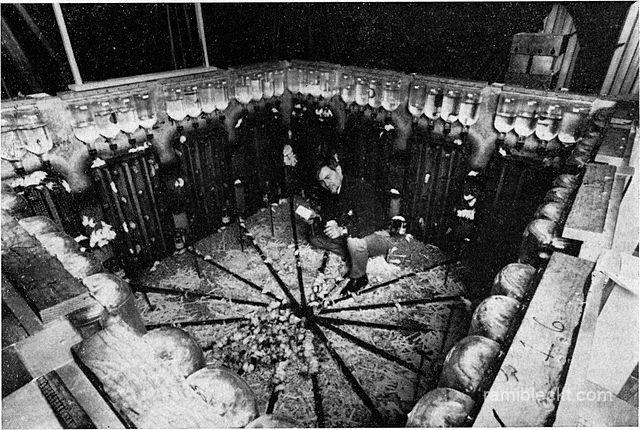Egoistic materialistic conscience extends through modern civilization and all less or more. Anyway, we all aspire to comfort, chic and so on… We believe this will make us happy.
As one French philosopher told, comfort is the last word of civilization. I don’t promote to create problems artificially, but to set as a goal only comfort existence or having not 30 but 200-300 channels on TV, work to have a fridge shock-fulled of food or just to press a button and receive anything you want are the ways to degrade. We grow only through actions, it’s how nature works. The experiment ‘The Universe 25’ shows it perfectly.
Fans of conspiracy theories contend that’s exactly in this way nowadays people become depraved, they get everything too easy, they are not able to do anything by themselves now. If the electricity will be shut down, we could get through this during our life, but if supermarkets, banks will be closed what could we do? To live in nature? I doubt. We need comfort and because of that, we are easily manipulated.
I hope, this article will inspire you to develop yourself spiritually and to develop yourself on all 4 levels, not to be lazy. Neither reject the comfort nor make it your main goal. I also suggest you add conscious austerity in your life, especially for men. For example, pouring with cold water in the morning, meditate. Also, it may be one hour a day of serving your nearest and dearest. So it might be stepping out of your comfort zone. It will move you both spiritually and physically to the new level. Because people who can’t stand even a little discomfort are doomed to suffer.
Rami
In 1972, animal behaviorist John Calhoun built a mouse paradise with beautiful buildings and limitless food. He introduced eight mice to the population. Two years later, the mice had created their own apocalypse. Here’s why.
Universe 25 was a giant box designed to be a rodent utopia. The trouble was, this utopia did not have a benevolent creator. John B. Calhoun had designed quite a few mouse environments before he got to the 25th one, and didn’t expect to be watching a happy story. Divided into «main squares» and then subdivided into levels, with ramps going up to «apartments,» the place looked great, and was always kept stocked with food, but its inhabitants were doomed from the get-go.
Universe 25 started out with eight mice, four males and four females. By day 560, the mouse population reached 2,200, and then steadily declined back down to unrecoverable extinction. At the peak population, most mice spent every living second in the company of hundreds of other mice. They gathered in the main squares, waiting to be fed and occasionally attacking each other. Few females carried pregnancies to term, and the ones that did seemed to simply forget about their babies. They’d move half their litter away from danger and forget the rest. Sometimes they’d drop and abandon a baby while they were carrying it.

The few secluded spaces housed a population Calhoun called, «the beautiful ones.» Generally guarded by one male, the females—- and few males — inside the space didn’t breed or fight or do anything but eat and groom and sleep. When the population started declining the beautiful ones were spared from violence and death, but had completely lost touch with social behaviors, including having sex or caring for their young.
In 1972, with the baby boomers coming of age in a ever-more-crowded world and reports of riots in the cities, Universe 25 looked like a Malthusian nightmare. It even acquired its own catchy name, «The Behavioral Sink.» If starvation didn’t kill everyone, people would destroy themselves. The best option was to flee to the country or the suburbs, where people had space and life was peaceful and natural.
Today, the experiment remains frightening, but the nature of the fear has changed. A recent study pointed out that Universe 25 was not, if looked at as a whole, too overcrowded. Pens, or «apartments» at the very end of each hallway had only one entrance and exit, making them easy to guard. This allowed more aggressive territorial males to limit the number mice in that pen, overcrowding the rest of the world, while isolating the few «beautiful ones» who lived there from normal society. Instead of a population problem, one could argue that Universe 25 had a fair distribution problem.
The fact remains that it had a problem, and one that eventually led to its destruction. If this behavior is shared by both mice and humans, can we escape Universe 25’s fate?

